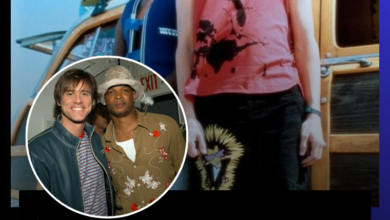Audrey Hepburn’s Career Began with This Fateful Letter – Here’s What It Said
OPINION: This article may contain commentary which reflects the author's opinion.
Audrey Hepburn is widely regarded as one of the most iconic figures in cinematic history, a woman whose elegance, charm, and natural talent captivated audiences around the world. From her unforgettable role as Holly Golightly in Breakfast at Tiffany’s to the regal Princess Ann in Roman Holiday, Hepburn’s filmography continues to resonate with audiences and serves as an enduring source of inspiration for actresses and filmmakers alike. However, her rise to stardom can be traced back to a simple yet powerful moment: a letter from one director that ultimately altered the course of her career.
Hepburn’s career-defining break came with her performance in Roman Holiday (1953), directed by William Wyler, a German filmmaker known for his long, illustrious career that included films such as Ben-Hur, Jezebel, and Funny Girl. Wyler had been working on preparations for Roman Holiday in Rome when he found himself at a crossroads: the film required a lead actress who could bring both youthful innocence and depth to the role of Princess Ann, a European royal who, while on vacation in Rome, escapes her sheltered life and falls in love with an American journalist.

At the time, Hepburn was relatively unknown in Hollywood. She had already been auditioning for several roles, and one such audition, for a film directed by Thorold Dickinson, caught the eye of Wyler. After watching her screen test, Wyler was immediately impressed by Hepburn’s screen presence. He was struck by her natural grace and charm, qualities that seemed to make her the perfect fit for Roman Holiday’s lead role.
The pivotal moment came when Wyler wrote a letter to Dickinson, commenting on Hepburn’s audition. In the letter, Wyler expressed his admiration for Hepburn, stating: “I can’t say at the moment whether or not we will use Miss Hepburn in Roman Holiday, but if we don’t you may be sure it will not be because of anything in the test – which is as good as any I’ve seen in a long time.” The director’s words were a resounding endorsement of Hepburn’s natural ability, and though he wasn’t ready to make a decision yet, it was clear that her talent had left an indelible impression on him.
Wyler’s admiration for Hepburn was further solidified after he met her in person and saw her in the context of her screen test. “She had everything I was looking for: charm, innocence, and talent. She also was very funny. She was absolutely enchanting, and we said, ‘That’s the girl!’” This moment marked the beginning of Hepburn’s rise to superstardom.
When she was ultimately cast in Roman Holiday, Hepburn’s performance exceeded all expectations, earning her an Academy Award for Best Actress—a remarkable achievement for an actress in her first major film role. The film’s blend of romance, comedy, and drama, along with Hepburn’s authentic portrayal of Princess Ann, solidified her as one of Hollywood’s brightest stars.
In the years following Roman Holiday, Hepburn went on to create some of the most memorable characters in film history, including her roles in My Fair Lady, Charade, and Sabrina. Her talent, paired with her signature elegance and grace, made her a beloved figure both on and off the screen.
Yet, none of this might have been possible without the simple but significant letter written by William Wyler, in which he acknowledged Hepburn’s extraordinary potential. That letter, expressing admiration for her screen test and marking a turning point in her career, ultimately gave us one of the most iconic actresses of all time.
Audrey Hepburn’s legacy remains unparalleled, not only for her incredible contributions to cinema but also for her ability to inspire generations of fans and artists alike. The story of how a letter from a director led to the discovery of “the girl” who would become an international icon serves as a powerful reminder of how talent, when recognized, can change the trajectory of a career—and leave an enduring mark on film history.



